CURRENCY
BUSINESS OPPORTUNITIES IN BOLIVIA
BOLIVIA
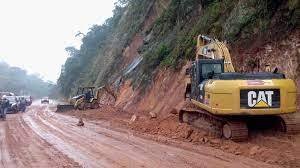


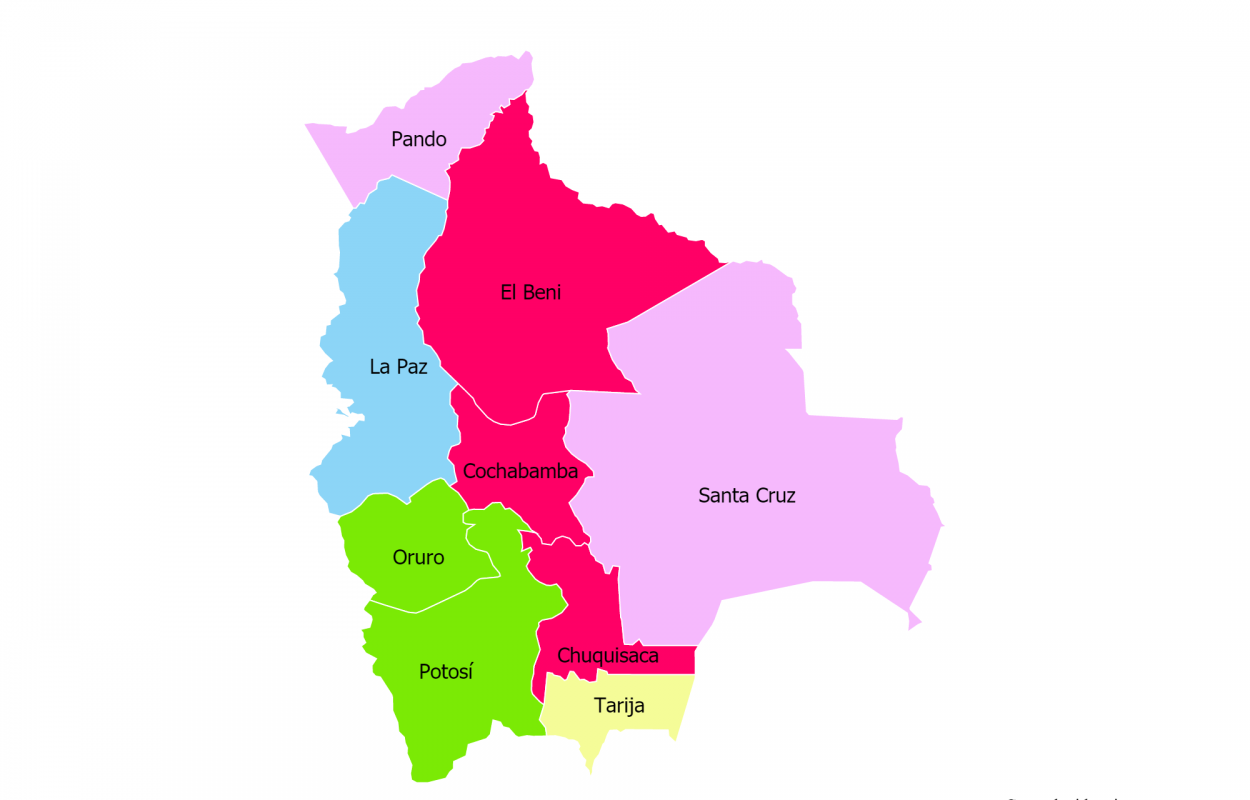
FLAG
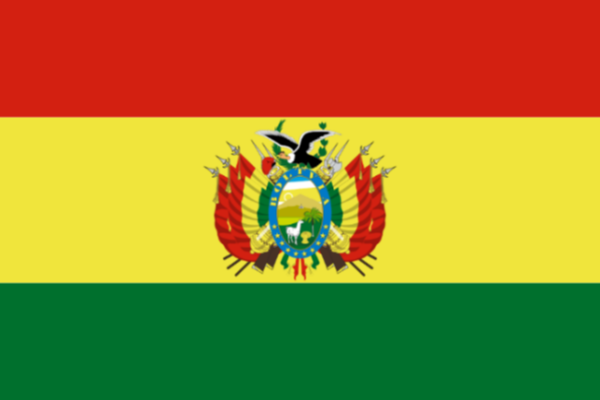
BOLIVIA
CAPITAL CITY
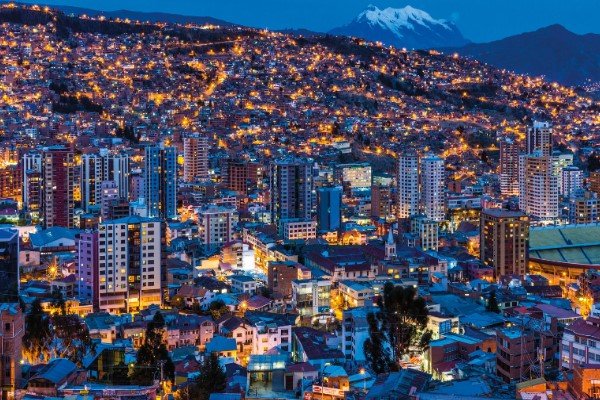
LA PAZ, SUCRE
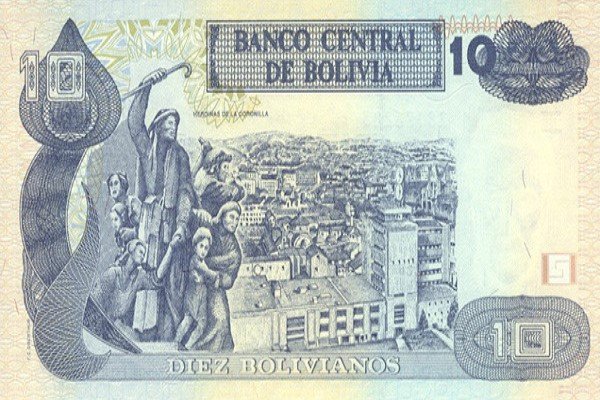
BOLIVIAN BOLIVIANO
Language

Population

11.84 CRORES
Country
Calling Code

+591
LOCATION:
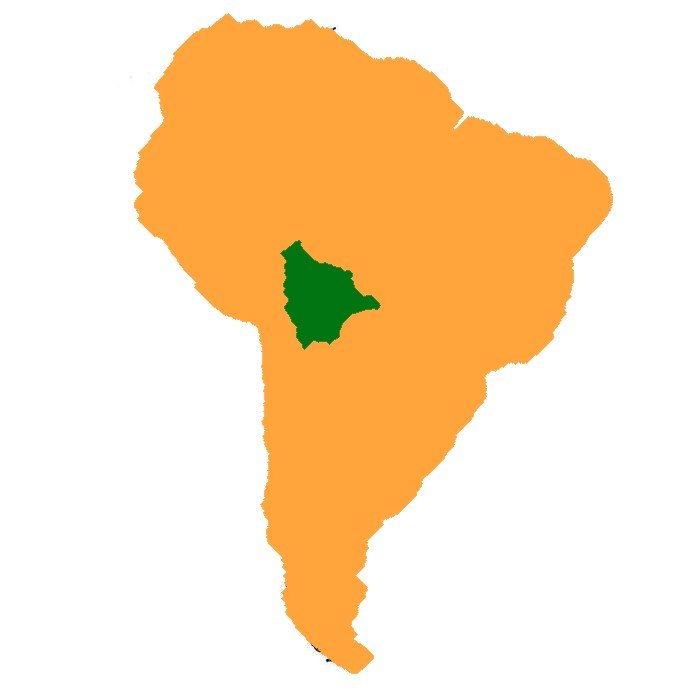
SOUTH AMERICA
BORDER COUNTRIES:
ARGENTINA
BRAZIL
CHILE
PARAGUAY
PERU
ABOUT BOLIVIA
Amongst all the countries in South America, Bolivia is a landlocked country located in the west-central part of the continent. It is renowned for its diverse geography, spanning the Andes Mountains, the Atacama Desert, and the Amazon rainforest. The country has two capitals: La Paz (administrative) and Sucre (constitutional and judicial). La Paz is also the largest city. According to the report of the World Bank, Bolivia has been classified as a Lower Middle-Income Economy. The currency of Bolivia is the Bolivian Boliviano (BOB). At the time of writing this article (June 11, 2025), the value of 1 Indian Rupee is approximately 0.081 Bolivian Bolivianos, meaning 1 Bolivian Boliviano is significantly higher in value than 1 Indian Rupee (approx. 1 BOB = 12.35 INR). The population of Bolivia is estimated at approximately 1.26 crores as of 2025. The neighboring countries of Bolivia are Brazil, Peru, Chile, Argentina, and Paraguay. The most commonly spoken languages in the country are Spanish, Quechua, and Aymara, with many other indigenous languages also recognized. The majority of the Bolivian population practices Catholicism, but other Christian denominations and indigenous spiritual beliefs are also followed. Bolivia has several international airports, with Viru Viru International Airport (Santa Cruz) being the busiest and El Alto International Airport (La Paz) being the highest international airport in the world. These airports provide air connectivity to various parts of the world. As Bolivia is a landlocked country, it utilizes seaports in neighboring countries, primarily Chile (Arica, Iquique, Antofagasta), Peru, Argentina, and Brazil, to facilitate its international trade requirements. It also has river ports like Puerto Aguirre on the Paraguay River, connecting to the Atlantic.
The corporate income tax rate in Bolivia is 25%. A 12.5% surtax applies to mining companies, and a 25% surtax applies to banks, insurance, and reinsurance entities, and certain other financial institutions. Opesh Group of companies will be helping you in completing the Due Diligence process which includes financial planning, registration process, business options, and if required, even helping you find a Rental property for your office.
Establishing a business in Bolivia has to be done with utmost care, keeping in mind the laws of the country. The Bolivian Commercial Code and other relevant legislation provide clear guidelines for foreign investors to register a company in Bolivia. Foreign investors can form various types of companies, such as a Sociedad de Responsabilidad Limitada (S.R.L. – Limited Liability Company), Sociedad Anónima (S.A. – Public Limited Company), or a Branch Office. A Sociedad de Responsabilidad Limitada (S.R.L.) formed and registered in Bolivia generally allows foreign investors to own 100% of the company.
In case an investor is planning to establish an S.R.L. or S.A. in Bolivia, Opesh Group will be helping you in taking the right decision for setting up your business in Bolivia and we will also guide you about how to follow the procedure while formulating your company in Bolivia.
Types of Business which can be started in Bolivia-
Mining – Bolivia is exceptionally rich in natural resources, holding some of the world’s largest reserves of lithium (part of the “lithium triangle”), as well as significant deposits of tin, silver, zinc, gold, and copper. This sector offers substantial opportunities for exploration, extraction, and processing, driven by global demand for critical minerals. Hydrocarbons (Natural Gas & Petroleum) – Bolivia possesses the second-largest natural gas reserves in South America after Venezuela. Opportunities exist in exploration, extraction, processing, and distribution of natural gas and petroleum products. Agriculture and Agribusiness – Despite its diverse geography, Bolivia has significant agricultural potential, particularly in the eastern lowlands. Opportunities exist in the production of soybeans, quinoa (a traditional grain with growing international demand), coffee, sugarcane, and livestock, as well as food processing. Renewable Energy – Bolivia is actively seeking to diversify its energy matrix and reduce reliance on hydrocarbons. The country has substantial potential for hydropower, solar energy (especially in the high-altitude regions), and wind power. Opportunities exist in project development, energy storage, and green technology. Tourism – Bolivia offers unique tourist attractions, including the Uyuni Salt Flats, Lake Titicaca, the Andes Mountains, and vibrant indigenous cultures. Opportunities exist in eco-tourism, adventure tourism, cultural tourism, and hospitality services (hotels, specialized lodges). Infrastructure and Construction – There is a continuous need for investment in infrastructure development, including roads, railways, and public utilities, especially in remote areas. Opportunities exist in large-scale construction projects and urban development. Manufacturing – While smaller than other sectors, opportunities exist in light manufacturing, particularly for local consumption and for processing raw materials into higher-value products (e.g., food processing, textiles). Information Technology (IT) and Software Development – Bolivia’s IT sector is developing, with growing demand for digital solutions and services. Opportunities can be found in software development, IT outsourcing, and digital transformation, leveraging a relatively lower cost of skilled labor.
Advantages of Starting Business in Bolivia-
Bolivia boasts abundant natural resources, particularly in minerals (lithium, tin, silver) and hydrocarbons (natural gas), offering vast potential for resource-based industries. The country has a young and growing population, providing a potential labor force and expanding domestic market. Bolivia’s strategic location in the heart of South America, despite being landlocked, provides potential trade routes and access to neighboring markets via agreements. The government is focused on industrializing its natural resources, which may lead to significant investment in processing and value-added industries. Bolivia maintains generally stable macroeconomic policies, aiming for economic growth and reduced poverty. The cost of living and doing business can be relatively lower compared to more developed South American economies. Opportunities exist in less saturated markets within certain sectors, allowing for potentially higher returns on investment for early entrants.
Business Opportunities for Indians in Bolivia-
There are significant and untapped business opportunities in Bolivia for Indian investors looking to explore a market rich in natural resources and with a growing need for development. Bolivia actively seeks foreign investment, particularly in strategic sectors. Indian investors can explore vast business opportunities in areas such as mining (especially lithium, gold, and tin), energy (natural gas and renewable projects), agriculture and food processing, and infrastructure development. Collaboration in these sectors can leverage Bolivia’s resource abundance and India’s technological expertise and growing demand for raw materials.
Imports & Exports-
Trade is a vital component of Bolivia’s economy, with significant volumes of goods being imported and exported. Proper research and development are crucial to identify suitable products for import or export and to assess market revenue potential.
Major items which are exported from Bolivia to India-
Minerals and Ores (especially gold, silver, zinc, tin, lead) Mineral fuels and oils (certain types) Soybeans and derivatives (e.g., soybean oil) Leather and animal feed (e.g., prepared animal food)
Major items which are imported in Bolivia from India-
Vehicles (including two-wheelers and parts) Pharmaceutical products Machinery and mechanical appliances Miscellaneous chemical products Rubber products Organic chemicals Plastics Electrical and electronic equipment Iron or Steel products Textiles and apparel
Manufacturing-
Indian companies can look into establishing manufacturing units in Bolivia, particularly for processing raw materials into higher-value products (e.g., mineral processing, food processing of agricultural products like quinoa), or for manufacturing goods for local consumption such as pharmaceuticals or automotive parts.
Mining-
The mining sector is a key area for potential Indian investment in Bolivia. With its vast reserves of critical minerals like lithium, gold, silver, and tin, Indian companies specializing in mining, mineral processing, and related technologies can find substantial opportunities.
Major Indian companies which are currently working in Bolivia-
Jindal Steel & Power Ltd. (JSPL) (formerly involved in the El Mutún iron ore project, though operations faced challenges) UPL Limited (agrochemicals, has an office in Santa Cruz) Tata Motors (retails vehicles through authorized dealers) Bajaj Auto, TVS Motor Company, Hero MotoCorp (through sales partnerships and assembly of motorcycles) Several Indian pharmaceutical companies (through distribution and sales). KABIL (Khanij Bidesh India Ltd) has recently signed agreements for exploration and development of lithium blocks, indicating growing interest.
GDP = $47.04 billion (2025 est.) GDP Growth = 2.2% (2025 est.) Ease of doing business rank = The World Bank’s Ease of Doing Business report has been discontinued; in 2019, Bolivia ranked 150 out of 190 economies. GDP per Capita = $3,362 (2025 est.)
Thanks for reading this Article. Watch our Video and know more about Bolivia. For any Business Enquiry Join Millionaire Program and change everything in life and Business.. Call/ WhatsApp +91- 8094607111.
MOST RECENT VIDEOS
SIGN UP TODAY
Get our exclusive content and offers in your inbox











